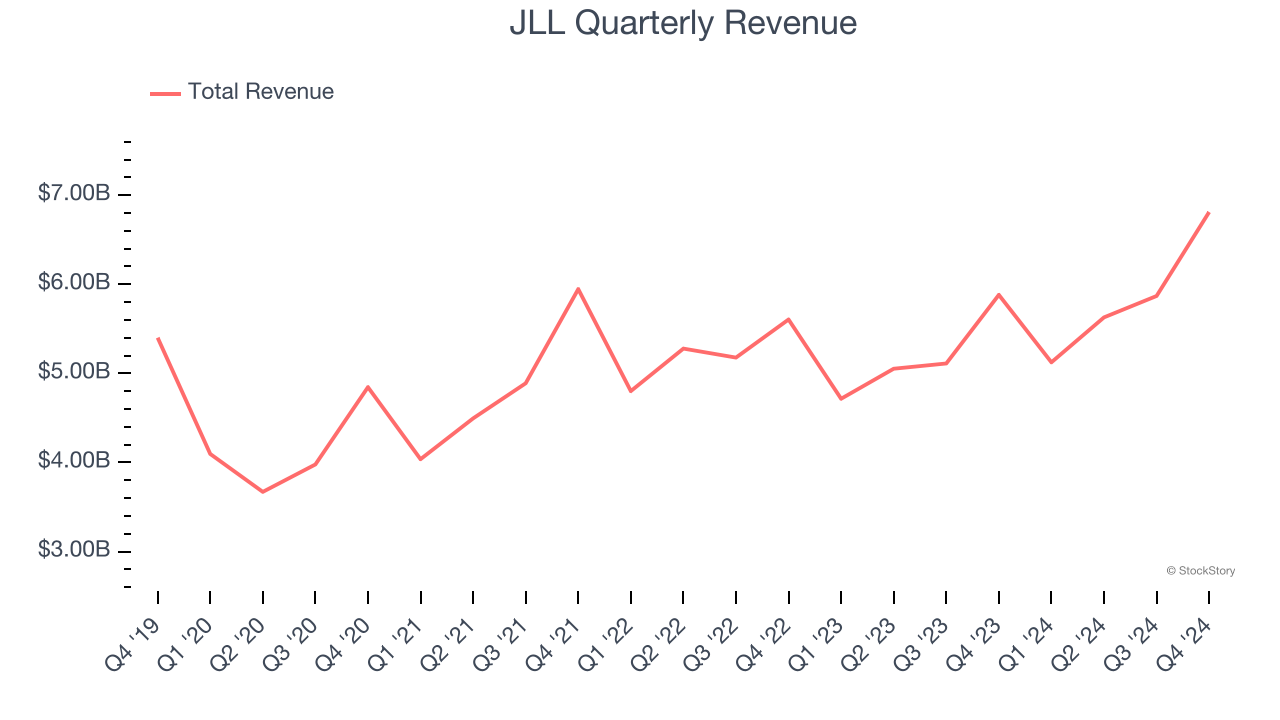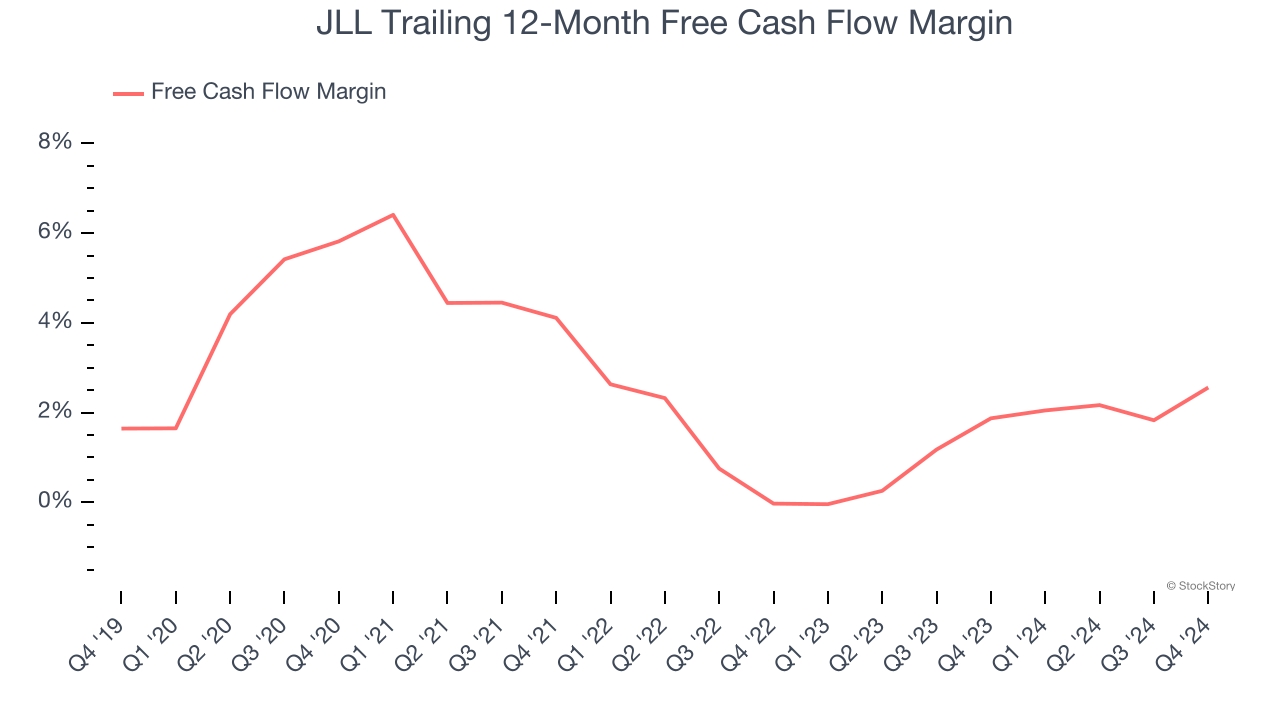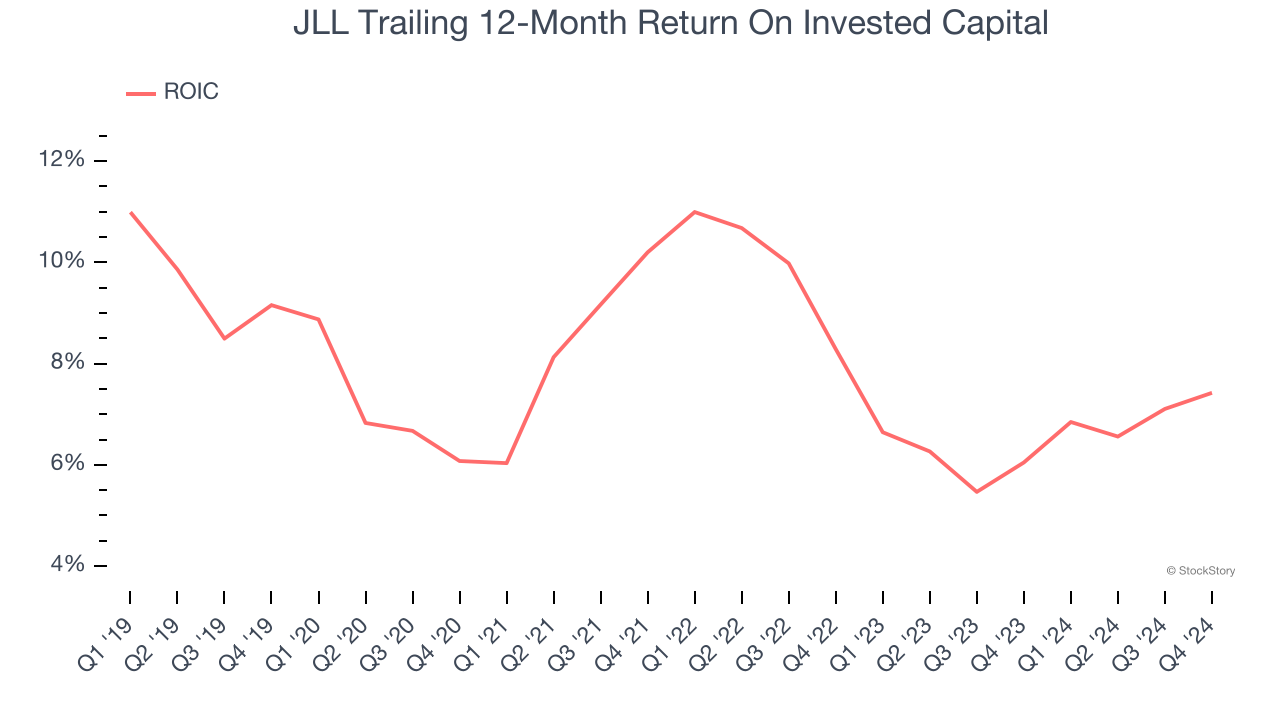
JLL trades at $244.01 per share and has stayed right on track with the overall market, losing 7.8% over the last six months while the S&P 500 is down 3.4%. This might have investors contemplating their next move.
Is there a buying opportunity in JLL, or does it present a risk to your portfolio? Get the full breakdown from our expert analysts, it’s free.
Even though the stock has become cheaper, we're sitting this one out for now. Here are three reasons why we avoid JLL and a stock we'd rather own.
Why Do We Think JLL Will Underperform?
Founded in 1999 through the merger of Jones Lang Wootton and LaSalle Partners, JLL (NYSE: JLL) is a company specializing in real estate advisory and investment management services.
1. Long-Term Revenue Growth Disappoints
Reviewing a company’s long-term sales performance reveals insights into its quality. Any business can experience short-term success, but top-performing ones enjoy sustained growth for years. Regrettably, JLL’s sales grew at a sluggish 5.4% compounded annual growth rate over the last five years. This was below our standard for the consumer discretionary sector. 
2. Mediocre Free Cash Flow Margin Limits Reinvestment Potential
Free cash flow isn't a prominently featured metric in company financials and earnings releases, but we think it's telling because it accounts for all operating and capital expenses, making it tough to manipulate. Cash is king.
JLL has shown poor cash profitability over the last two years, giving the company limited opportunities to return capital to shareholders. Its free cash flow margin averaged 2.2%, lousy for a consumer discretionary business.

3. Previous Growth Initiatives Haven’t Impressed
Growth gives us insight into a company’s long-term potential, but how capital-efficient was that growth? A company’s ROIC explains this by showing how much operating profit it makes compared to the money it has raised (debt and equity).
JLL historically did a mediocre job investing in profitable growth initiatives. Its five-year average ROIC was 7.6%, somewhat low compared to the best consumer discretionary companies that consistently pump out 25%+.

Final Judgment
JLL doesn’t pass our quality test. Following the recent decline, the stock trades at 15.1× forward price-to-earnings (or $244.01 per share). This valuation tells us it’s a bit of a market darling with a lot of good news priced in - we think there are better investment opportunities out there. Let us point you toward one of our top software and edge computing picks.
Stocks We Like More Than JLL
Market indices reached historic highs following Donald Trump’s presidential victory in November 2024, but the outlook for 2025 is clouded by new trade policies that could impact business confidence and growth.
While this has caused many investors to adopt a "fearful" wait-and-see approach, we’re leaning into our best ideas that can grow regardless of the political or macroeconomic climate. Take advantage of Mr. Market by checking out our Top 5 Strong Momentum Stocks for this week. This is a curated list of our High Quality stocks that have generated a market-beating return of 175% over the last five years.
Stocks that made our list in 2019 include now familiar names such as Nvidia (+2,183% between December 2019 and December 2024) as well as under-the-radar businesses like Sterling Infrastructure (+1,096% five-year return). Find your next big winner with StockStory today for free.





